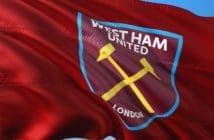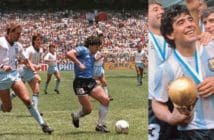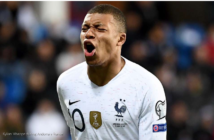Group H Preview
“Hablamos Españolâ€, and maybe some Chilean too
Jorge Rivera for ProstAmerika.com

First Sounder at the World Cup
A series of interesting, and rather intricate coincidences, glues together the last group of the World Cup 2010; a group carrying one of the top favorites to win it all.
The most obvious coincidence is that, three of the four teams in this group speak Spanish in their countries, (obvious reason why I was asked to preview it for ProstAmerika).
A trivia curiosity: three Spanish speaking teams in the same group has only happened once before, in the very first World Cup, played in Uruguay 1930; that year Group 1 confronted Argentine, France, Mexico and Chile.
But there are two more coincidences here; three of the four teams play with red jerseys for most of their home games (Spain, Chile and Switzerland), and those three have also been hosts of the World Cup before, 1982, 1962, and 1954, respectively.
Chile happens to be the team who has come closest to winning the Cup, having finished third to Brazil and Czechoslovakia the year they hosted the tournament, and Honduras is the team with least experience; this is just their second trip to the main event, first being almost 30 years ago.
Group H features Spain, widely recognized as current top team in Europe and current continental champion, with Switzerland, a rather weak side, qualifying from a very easy European draw, and with Chile and Honduras, two teams coming from the lower end of the two Americas confederations; both with little recent history at the national team level; so, this is not expected to be one of the most competitive groups, but it can get interesting, with a little luck.
Spain
“The Red Fury†cruised its group stage at Germany 2006, winning all three games, only to fade in the first knockout and fall 3-1 to France.
Disappointment in Germany seems to have sparked the pride of the Spaniards, who did the same in the group stage of Euro 2008, win all three in the group round, but this time didn’t look back and, after beating Italy in a shootout, defeated Russia and Germany in 90 minutes each, to take home the European trophy for the first time in history.
During the World Cup qualifiers, the impressive squad did more of the same, 10 victories with no draws or losses, 25 goals versus only three conceded; almost a walk in the park, yet having to battle against a tough Turkish team, coming off Euro semis in 2008.
On the pitch Spain has, almost unarguably, the best midfield in current world soccer; a superb three men line with Andres Iniesta, Xavi, both from Barcelona, and Xavi Alonso, from Real Madrid, they bring speed, space, and accuracy in passing like no other line, feeding permanently of quality services to several options of proven goal scorers.
There is a slight weakness here, though, Fernando Torres, “El Niñoâ€, their natural striker, is not quite ready, after suffering two injuries this year while at Liverpool, so David Villa will carry most of the load up front, but that is not a bad option either. Villa has been a top 5 goal scorer in “La Ligaâ€, three years in a row.
The other strength of Miguel Del Bosque’s side is, to no doubt, its flank play. The right side with Sergio Ramos coming from the back, and a surprising Jesus Navas, will add more speed and options to the amazing midfield, the left side, though a little weaker, can always count on Iniesta’s traveling ability, for as long a he is healthy.
Spain has not looked too sharp on defense this year, but with Real Madrids’ Iker Casillas beneath the post, and two savvy Barca men (Pique and Puyol) protecting him, it should just be a matter of tune up during the first round.
Spain should have no problem moving on to the next round, and from there on, I believe the physical condition of rather tired players like Iniesta, Fabregas and Torres, will largely determine how far they go, because, with a fully healthy side, Del Bosque’s team should at least be in the semifinals, a stage the red fury has only reached once.
“There will be red shirts and former host countries moving on to the next round”
Chile
“La Roja†is a rather unknown team for international soccer fans; and I believe this is due to a not very popular league, mostly known only in South America, and to the lack of players in the top sides of the main European leagues. There are many Chileans playing in Europe, but mostly in mid to low table teams, or smaller leagues.
Chile’s last World Cup appearance dates back to France 1998, when they made it to the knockout stage thanks to three ties in the group round, and then fell to Brazil.
Chile had not been capable to put a good national team together in this century; it had not even made it to semifinals of “Copa Americaâ€, the continent’s equivalent to Euro Championship, but that was until they gave the reigns of the team to an Argentinean by the name of Marcelo Bielsa. Bielsa is a master of tactics with World Cup experience, having taken the Argentinean national team to 2002 Korea-Japan tournament.
Under Bielsa, Chile fought Brazil throughout the two years of qualifiers, and ended up second in the South American region, higher than Argentina, earning an early ticket to South Africa.
Bielsa, to some extend the same way that Javier Aguirre has done for Mexico, has been able to combine a nice crop of young players with youth World Cup experience, with a small but safe set of veterans with international mileage at the club level.
The reds are fast and skilled; they will probably feature 3 to 5 starters from the team that took third place in Canada’s 2007 U20 World Cup, (Vidal, Medel, Sanchez, at the least) and they should be the lungs to a slower but more controlled set of veterans up front.
Humberto Suazo, a shaved head man nicknamed “El Chupeteâ€, the lollipop, is Chile’s key player, currently with Zaragoza in Spain’s La Liga; he was the top scorer in the South American qualifiers; strong but not too tall, Suazo has the mobility to turn and find space, and the finishing to put it away from the keeper; although he suffered an injury two weeks ago, it was just confirmed he will lead this red ones in their first game, against Honduras.
Watch Chile play, they are fun, speedy and aggressive; they face a though draw, though, with Spain in this Group, and Brazil and Portugal in Group G, otherwise I would project them to still be playing in July.
Switzerland
This team is a little hard to analyze, they seem to have improved their soccer level in the last, say, eight years, but they have proven inconsistent, and it is a little hard to guess the Swiss team that will actually show up for the South African clash.
After more than 20 years away from the tournament, the third red team in the list made it to Germany 2006, and they even made it off the group round, without conceding a goal; but they were kicked out by Ukraine, after a penalty kick shootout in the round of 16.
Having been named co-host country of Euro 2008, expectations ran high for the Swiss, but they disappointed its thousands of fans, losing their first two games and being the first team to be eliminated of the tournament, before ending the group round with a victory against an already qualified Portugal.
Switzerland seemed to have gotten a really easy draw for the World Cup qualifier, against teams that didn’t even exist a few years back, Latvia and Moldova, and against proverbial non World Cup participants, like Luxembourg and Israel; they did manage to come ahead of Greece, beating them twice, so that earned them the direct ticket.
Similar to Chile, Switzerland doesn’t have players in the top teams of the top leagues; you may have heard of Philippe Senderos, a defender currently at Everton, after some not so good times with Arsenal.
But the star of the team is, to no doubt, forward and captain Alexander Frei, a tall, yet agile striker, the greatest goal scorer in the country of the army knives cuckoo clocks, secret bank accounts and the expensive chocolates.
Bad news here, Frei will be out for at least the first key game, against Spain, after injuring his right ankle during a training session this week.
The Swiss would probably be a boring team for any of us to follow during the World Cup, had the Sounders not hired the other point forward of the team, Congolese born, 34 years old Blaise Nkufo.
This changes everything.
I am personally not a fan at all of MLS bringing players towards the end of their careers (unless they are goalies, who not only they stabilize the team from the back, but also directly mentor younger goalies). I am not sure that more than 20 years of doing it with outfielders, between NASL times and MLS times, has proven that to be of any significant benefit.
But I have to say that, watching Nkufo (who I knew nothing about before Sounders mentioned him in a press release), in preparation for the World Cup, has been fun; the Swiss has his moves, he is not just a big guy, pushing his way towards the net; he has the flare, the respect for the ball that many “Number 9†in this league don’t have. And he did contribute to a provincial team, Twente Enschede, winning their first ever championship in the Netherlands.
So, that is interesting and, the fact that he will be a starter possibly in all games, is encouraging for us to watch the Swiss.
Honduras
If you follow the US national team, you probably know more about Honduras than about any other of these teams in Group H; the “Catrachos†are a regular rival of the star spangled team, as we call US nationals in Latin America.
Jonathan Bornstein, Chivas USA left back, is Honduras most popular player. I know, he is American, but he scored that one equalizer for the US against Costa Rica, that put the Catrachos in the World Cup; if you don’t remember the score, just do a You Tube search by “Bornstein, Honduras te ama†(Bornstein, Honduras loves you).
Honduras is a well coached team, Reynaldo Rueda, former Colombian national coach, has converted them into an organized side, that gets the most out of the strength of its defenders and defensive midfielders, where you find several players based in Europe, like Maynor Figueroa and Hendry Thomas (Wigan), and Victor Bernardez (Belgium’s Anderlecht). Past midfield the Hondurans show some talent and good ball control, but lack speed, particularly if you compared them with Spain and Chile, their first two rivals.
The other problem for Honduras, is that the team has had a miserable tune up tour, tying or losing to little known, eliminated teams, like Belarus and Romania. So you can expect some entertaining soccer at times, but it is not likely that they will put a big fight against the top teams; they do or die game is actually their first, against Chile, where they could use the inspiration of playing against a more familiar team, to try to beat them.
Prediction
1. Spain, this needs to be just the beginning for The Fury
2. Chile, more talent, more speed, and clever coach
3. Switzerland, they have looked fairly rusty in tune ups
4. Honduras, Maybe qualifying was their prize
![Prost International [PINT]](https://prostinternational.com/wp-content/uploads/2021/08/PINTtFontLogoRoboto1536x78.jpg)


